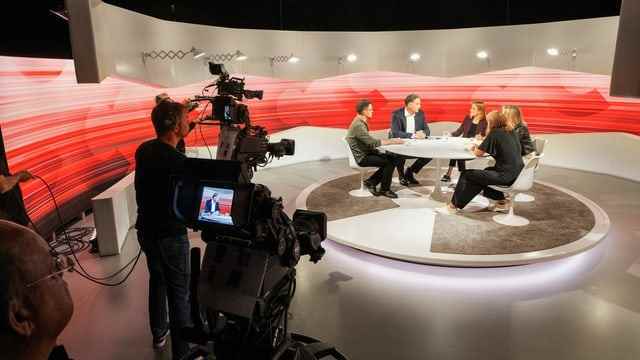Syria, Iraq, Ukraine: CNN correspondent Frederik Pleitgen has reported from numerous war and disaster zones. For example, he was the first international journalist to report on the alleged war crimes in the Ukrainian city of Bucha in early April. In an interview with the SRF program “Club”, he tells how his work has shaped him, how he deals with the dangers and what influence journalists have on the perception of a war.
SRF News: War reporters are often asked what it’s like to go to war. But what is it like to come back? Can you take it?
Frederik Pleitgen: It’s difficult. Especially the last few times in Ukraine it was difficult to let go. The war goes on, the suffering goes on. You feel a little guilty for leaving behind the people you shared so much with. It’s not easy to go back and integrate into everyday life.
You were one of the first journalists in Bucha after the Russian army left. At such a moment, how do you decide which images to show, what to expect of the audience?
That’s really hard. I think that has changed a bit in recent years. I think they try to show as much as possible. But you also have to make sure that you protect the dignity of the people who lost their lives. I’m always for showing as much as possible. But of course I don’t make such decisions alone, especially when it comes to such cruel things. The editors always decide what needs to be pixelated. But it is difficult and evolves over time.
Images from war can have a huge impact.
To what extent can such images and reports influence the perception of the war?
I think the great strength of moving images and photos is that you can convey suffering emotionally. You can read a lot of facts – it’s also important that you do that. But then when you see the face of a child who has been wounded or a mass of people who have been killed, it triggers something that can have a huge impact.
What about the war over journalistic distance?
I think objectivity is something that you never fully achieve, but that you always have to strive for as a journalist. Especially when you are in places where things are happening that are emotionally very stressful and where a lot of things look very one-sided.
How do you protect yourself when working in these areas?
I prepare for these missions by following where the front is currently and what weapons are being used there, for example whether there are long-range weapons. This way I can estimate how far away I need to be from the front and where it becomes dangerous. I also deal with geography: Where are rivers, where are roads that are still passable? On site, we also work with security guards who advise us.
Why do you keep going back to war? What drives you?
In many crises and wars, world politics is decided and world history shaped. That’s why you have to be there to document it, take it with you, experience it. What’s more: When you work in war, you experience all facets of emotionality. That is hard. But at the same time it also makes you emotionally very strong – when you realize that you experience things that people shouldn’t actually experience.
In war you see the worst and the best in people.
You experience horror, but there are also moments of humanity?
That’s close to each other. That’s why I always say: In war you experience the worst and the best in people. That’s also what carries you – when people pour out their hearts to you. In Ukraine, in a devastated town, we met a woman who at first didn’t even want to speak to us. But then suddenly everything broke out of her because she somehow had to get it off her chest. Such moments are very important. Also to better understand the conflict.
How did the war change you?
I think the war – or wars – made me stronger and more resilient as a person. When you’ve been shot at, you’re not so afraid of many other things in everyday life. You’ve seen the greatest ups and downs. That is important and formative.
The interview was conducted by Barbara Lüthi.

